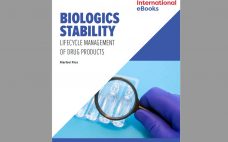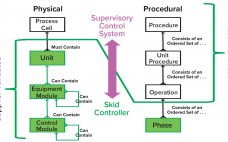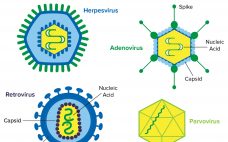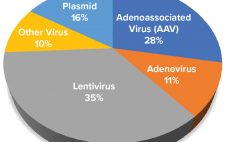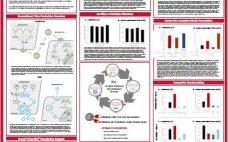The biomanufacturing industry’s increasing attention to risk mitigation through quality by design (QbD) and the emergence of complex therapeutic modalities have driven the need for a lifetime-management approach to assuring drug product stability. To that end, industry guidelines have been (or are being) developed to guide the industry toward a “holistic approach” to conducting stability assessments. However, not all methods are stability indicating, and many more industry concerns need to be addressed. This BPI eBook offers perspectives on ICH Q12…
Tuesday, December 17, 2019 Daily Archives
November–December 2019: From the Editor
Over a decade ago, the BioProcess International Conference and Exhibition was created by combining formerly separate IBC conferences on upstream, downstream, analytical, and manufacturing topics for the biopharmaceutical industry. They became tracks in the larger program that reflect the coverage of the magazine after which the event was named. Over time, US West, Asian, and European variations on the theme were added to our yearly calendar. And in the past few years, Biotech Week Boston has evolved by similarly bringing…
The Value of Plug-and-Play Automation in Single-Use Technology
Automation can improve efficiency, track performance, adjust operations, and liberate operators from mundane routines. Automation requires a flexible set of tools that align well with the inherent flexibility of single-use technology (SUT). Although SUT flexibility enhances a biomanufacturer’s ability to modify operations to meet the needs of today’s dynamic industry, it also increases timelines and costs related to customizing and validating automated additions. We present herein the findings of a team of industry automation experts who are sharing their experiences…
Detection and Clearance of Viruses in the Biopharmaceutical Industry
Viral contamination is a common threat to all animal- and human-derived biopharmaceuticals. This type of contamination can affect any part of a bioproduction process, so biomanufacturers need to perform viral testing studies and incorporate viral clearance methods into their processes. Viral contaminants can come from cell lines (e.g., endogenous retroviruses) or from adventitious (e.g., mycoplasma) introduction during drug manufacturing. Virus testing of master cell banks (MCBs), working cell banks (WCBs), end-of-production cell banks, and bulk unprocessed harvest material is called…
Capacity Analysis for Viral Vector Manufacturing: Is There Enough?
Advanced therapy medicinal products (ATMPs) are engineered to replace defective, disease-causing genes to compensate directly for a genetic defect or to encode a therapeutic protein construct (e.g., chimeric antigen receptor, CAR) for disease treatment. In most instances, a viral vector delivers the engineered genetic payload, targeting cells in situ or ex vivo through cellular modification, expansion, and infusion into a patient. Clinical successes of ATMPs bolstered by regulatory approval of products such as Luxturna (voretigene neparvovec-rzyl, Spark Therapeutics), Kymriah (tisagenlecleucel,…
High Titer Recombinant Lentivirus and Adeno-associated Virus Production for Therapeutic Applications
Increase your recombinant lentivirus and adeno-associated virus (AAV) production with a novel transfection formulation, TransIT-VirusGEN® Transfection Reagent, specifically designed for large-scale virus production to support gene and cell therapies. This poster highlights TransIT-VirusGEN® for use in adherent or suspension cell culture platforms along with enhancers that significantly increase functional virus titers over PEI based formulations. Testing was performed with multiple serum-free media formulations and examined using different plasmid DNA concentrations to better address compatibility within various workflows. Download the poster…
Hemophilia A-OK! FTC thumbs up effectively closes Roche’s $4.3bn Spark buy
There is no risk of competitive harm between Roche’s approved hemophila A monoclonal antibody and Spark’s gene therapy candidates, say the US and UK competition bodies. In February, Swiss Biopharma firm struck a deal to buy Philadelphia, Pennsylvania-based Spark Therapeutics for $4.3 billion (€3.8 billion). Now after months of investigation by the US Federal Trade Commission (FTC), Roche is on the verge of closing the deal. The FTC’s concerns centered on the potential competitive harm of overlaps between Roche and…
Charles River bids $380m to buy cell therapy services firm HemaCare
HemaCare will boost Charles River Laboratories’ offering in the cell therapy materials and leukapheresis space – a market predicted to grow to $2 billion in the next decade. The deal will add expand Charles River’s cell therapy offering. HemaCare provides human primary cells as well as services used in the discovery, development and commercial production of cell therapies. Leukapheresis – the separation of white cells from blood samples – is a core HemaCare offering. The firm provides leukapheresis services for…

